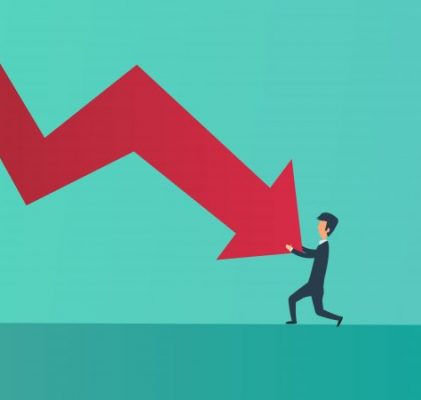The last significant recession was the economic crash 12 years ago, and many SMEs have never experienced a serious downturn. But, while the impact of Covid-19 has already been a shock and the prospect of a prolonged recession and possible further lockdowns may be daunting, there are steps you can take to navigate this new environment and emerge even stronger.
The very first thing you need to do is manage your cash position. That means forecasting three months ahead and updating that forecast every two weeks so that you are clear about your sources and uses of cash. You should consider different scenarios and be conservative in how you think your market and customers will respond to a recession. When forecasting forward, make sure that you have no hidden tax bills or VAT liabilities that will be difficult to manage. Also assess whether you can strengthen your balance sheet with an equity raise or refinancing of existing debt at better rates.
You should also consider other sources of cash, such as debtors and stock. Stuart Lawson, who now works as a Business Growth Advisor for Elephants Child, says: “I’ve talked to one company with a debtor book running out to 200 days. They’ve been very supportive of their customers, who haven’t really been paying regularly or to terms. Focus on turning overdue debtors into cash, manage customers to terms and make sure you aren’t over-exposed to one major debtor.”
Strategic response
Once you have a clear view of your sources and uses of cash you can begin to think seriously about your strategic response to the recession. It can be a time of opportunity for businesses that embrace the ‘new normal’, re-focus their energies and resources and set new priorities. It’s no coincidence that some of the world’s most dynamic businesses were started during recessions, including Microsoft in 1975 and Airbnb in 2008.
Stuart says: “Take the opportunity to pivot or change your business model. We have seen many examples of businesses doing just that recently, such as restaurants that have successfully developed takeaway services or dine-at-home packs. This is a chance to rapidly introduce new products and services or to re-engineer old ones for the new commercial environment.
“Continue to focus on growth and strategic intent. There may be cheaper M&A opportunities during a recession and you can improve your chances of thriving if you act aggressively to capture market share during a downturn, rather than waiting for the recovery to begin. Acting with purpose and speed may also mean more aggressive restructuring and changes to your product and trading portfolio – right-sizing for the future.
But it’s not all about seizing new opportunities, says Stuart. There will be longer term benefits if you focus on customer value and support. If you help your best customers now, they will be in a position to reward you when the economy recovers. This is also the time to review your supply chain and bring a renewed focus to managing margins by renegotiating key supplier relationships and contracts.
Showing leadership
However unpalatable, there may be a need to re-assess staffing levels. But, even if there have been changes, you have to maintain productivity and efficiency and that means keeping your team on-side. Stuart adds: “You’ve got to make sure you keep the right skills to maintain performance. You can’t have any performance drift and that comes down to the leadership role. You’ve got to create an environment where there’s some positivity and certainty because you don’t want people coming to work suddenly feeling like there’s no point.
“So, you’ve got to maintain the alignment and motivation of the teams even in difficult circumstances. A business leader is responsible for four things: strategy; tactics, leadership and followership. The leader of a small business sets the strategy. You are also providing leadership and making sure that everybody in the organisation knows where the company is going, what it’s doing and what’s expected of them.
“You also need to create an environment where everybody feels that everybody has an equivalent level of challenge. And the last thing is this notion of followership. So, the employees have got to believe that you know what you are doing and where you are going.”
Leading your business through a recession is challenging, but when you come out the other side you should be more resilient, more agile and better able to meet the challenges of the years ahead.


